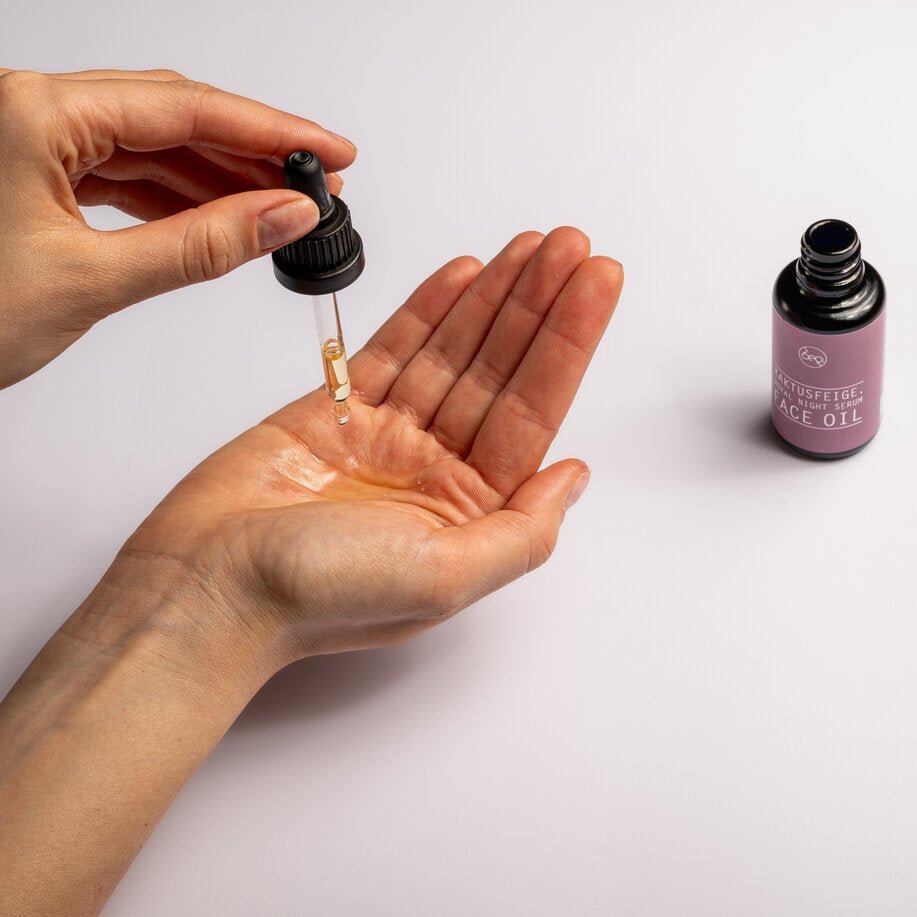
What is the skin microbiome?
The protective function is one of our skin's most important functions. Healthy skin protects us from external influences, protects against germs, and keeps our body temperature balanced.
You've probably heard of the gut microbiome. Did you know that our skin also has a microbiome? This is a simplified overview of our skin:

The outermost layer of the epidermis is the stratum corneum, which contains the acid mantle. This is where the skin barrier is formed. Its barrier function is largely determined by your skin microbiome.

These microorganisms, predominantly bacteria with more than 500 bacterial species, support the healthy balance of our skin and act as a natural protective barrier against harmful environmental influences and inflammatory bacteria on our skin.
Simply put: the stronger the microbiome, the stronger the skin barrier and the better protected with healthier skin.
However, if the microbiome is disturbed, i.e. the skin barrier does not function properly, the skin can tend to become red, itchy, lose water more quickly and become tight and dry.

If certain factors predominate over a longer period of time, they can disrupt our microbiome.
For example, cleaning too frequently or too intensively can wash away beneficial microorganisms, which in turn can attack the natural protective layer and disrupt its balance.
Over-care or using strong active ingredients too often can also make the skin's natural protective layer vulnerable and thus more sensitive.
If the skin barrier does not function properly, the skin may become red, itchy, lose water more quickly, and become tight and dry.

To strengthen your microbiome and bring your skin back into balance, it makes sense to take a holistic approach .
🌐 Stress has a major impact on balanced skin. Poor skin, in turn, can cause stress. Constantly experimenting with new products or over-treating with too many products often worsens the situation and is counterproductive.
😴Sleep well. Getting enough sleep is essential for skin to regenerate and maintain its elasticity. For example, it allows the connective tissue protein collagen to form.
🫑🍅A healthy, plant-based diet with sufficient nutrients. Foods high in omega-3 fatty acids (e.g., mackerel, linseed oil, rapeseed oil) keep the mucous membranes well-moisturized and protect the body from external influences. Also, drink at least 1.5-2 liters of good water per day.
🏃Regular exercise stimulates the circulation and relaxes the psyche.
🧑 Facial massages and gentle brush massages promote circulation, stimulate collagen synthesis, and ensure a firmer, fresher complexion. Regularly indulge in these little rituals as part of your skincare routine, which also relax your mind.

Try washing yourself with just water in the morning. Then, in the evening, always remove your makeup thoroughly and use a mild cleanser.
Less is more
Don't overload your skin every day with a cocktail of active ingredients such as AHA acids, vitamins, retinol, etc.
The skin cannot process too many active ingredients in too short a time and these can be just as aggressive and therefore have the exact opposite effect. The solution: fewer instead of more products.
Reduce skincare products in general and active ingredients and after a short time your skin will improve.
In addition, a #skinfasting, or giving your skin a break every now and then, is good for it. Try it occasionally, for example, when you're relaxing at home, without using any skincare products at all and letting your skin "work on its own." It can also be an effective way to identify skincare products that irritate your skin and do more harm than good.
Avoid drying skincare products with alcohol or PEGs as a 2nd or 3rd ingredient.










Leave a comment
This site is protected by hCaptcha and the hCaptcha Privacy Policy and Terms of Service apply.